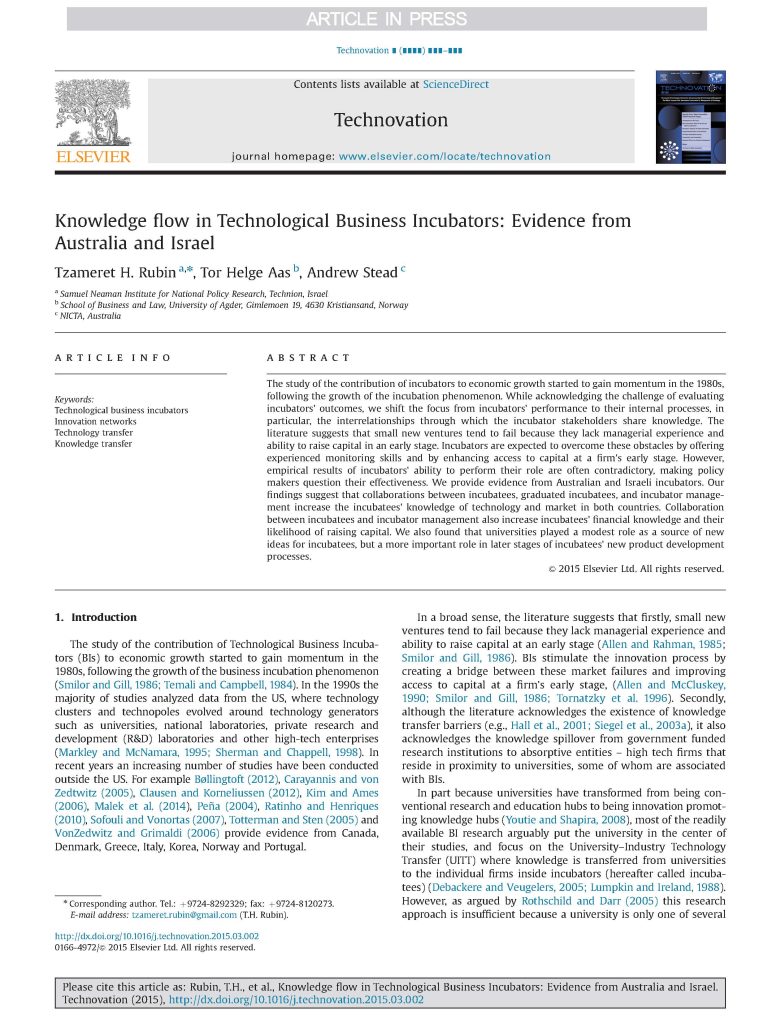The study of the contribution of incubators to economic growth started to gain momentum in the 1980s, following the growth of the incubation phenomenon. While acknowledging the challenge of evaluating incubators׳ outcomes, we shift the focus from incubators׳ performance to their internal processes, in particular, the interrelationships through which the incubator stakeholders share knowledge. The literature suggests that small new ventures tend to fail because they lack managerial experience and ability to raise capital in an early stage. Incubators are expected to overcome these obstacles by offering experienced monitoring skills and by enhancing access to capital at a firm׳s early stage. However, empirical results of incubators׳ ability to perform their role are often contradictory, making policy makers question their effectiveness. We provide evidence from Australian and Israeli incubators. Our findings suggest that collaborations between incubatees, graduated incubatees, and incubator management increase the incubatees׳ knowledge of technology and market in both countries. Collaboration between incubatees and incubator management also increase incubatees׳ financial knowledge and their likelihood of raising capital. We also found that universities played a modest role as a source of new ideas for incubatees, but a more important role in later stages of incubatees׳ new product development processes.
The full article is available in the following link:
http://www.sciencedirect.com/science/article/pii/S0166497215000139












